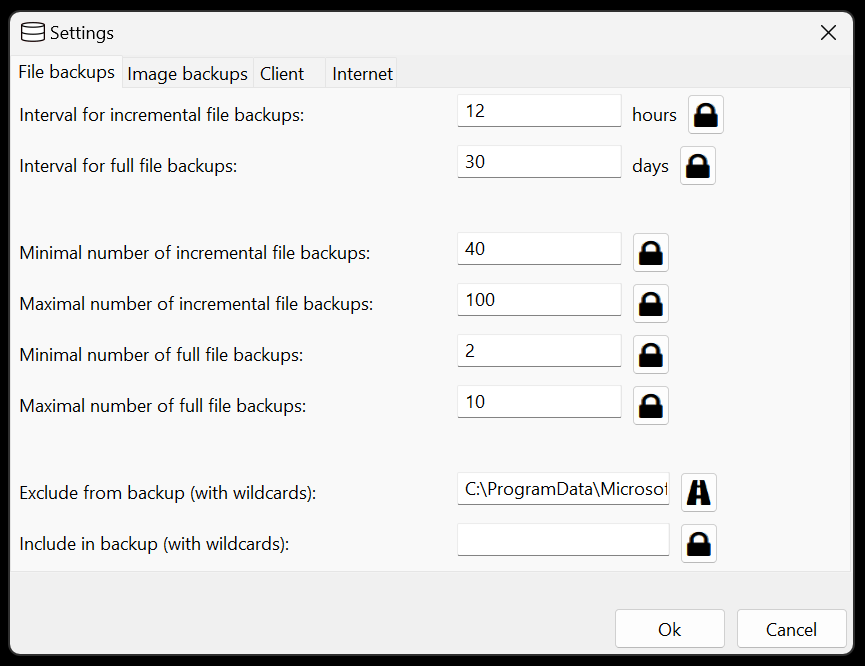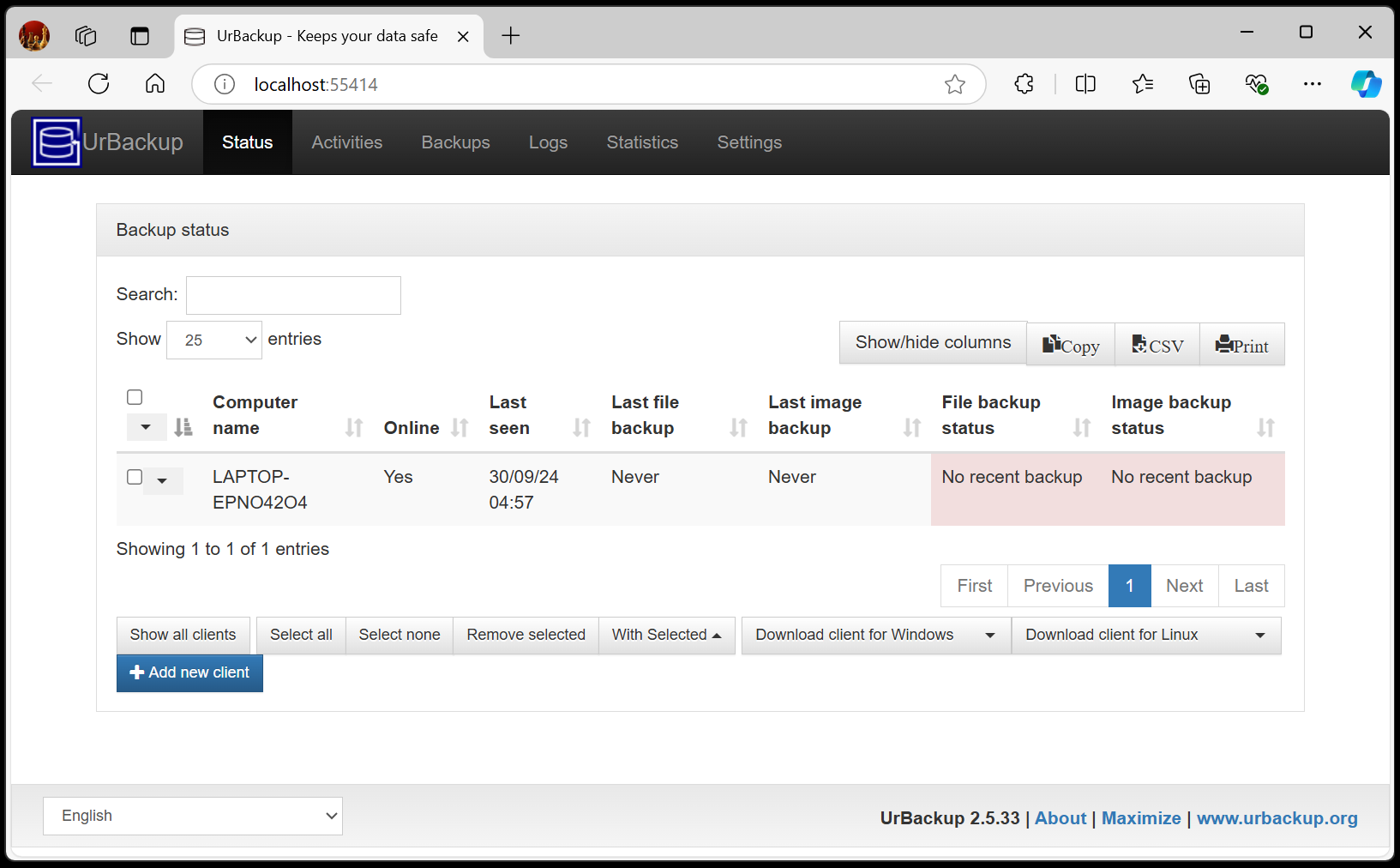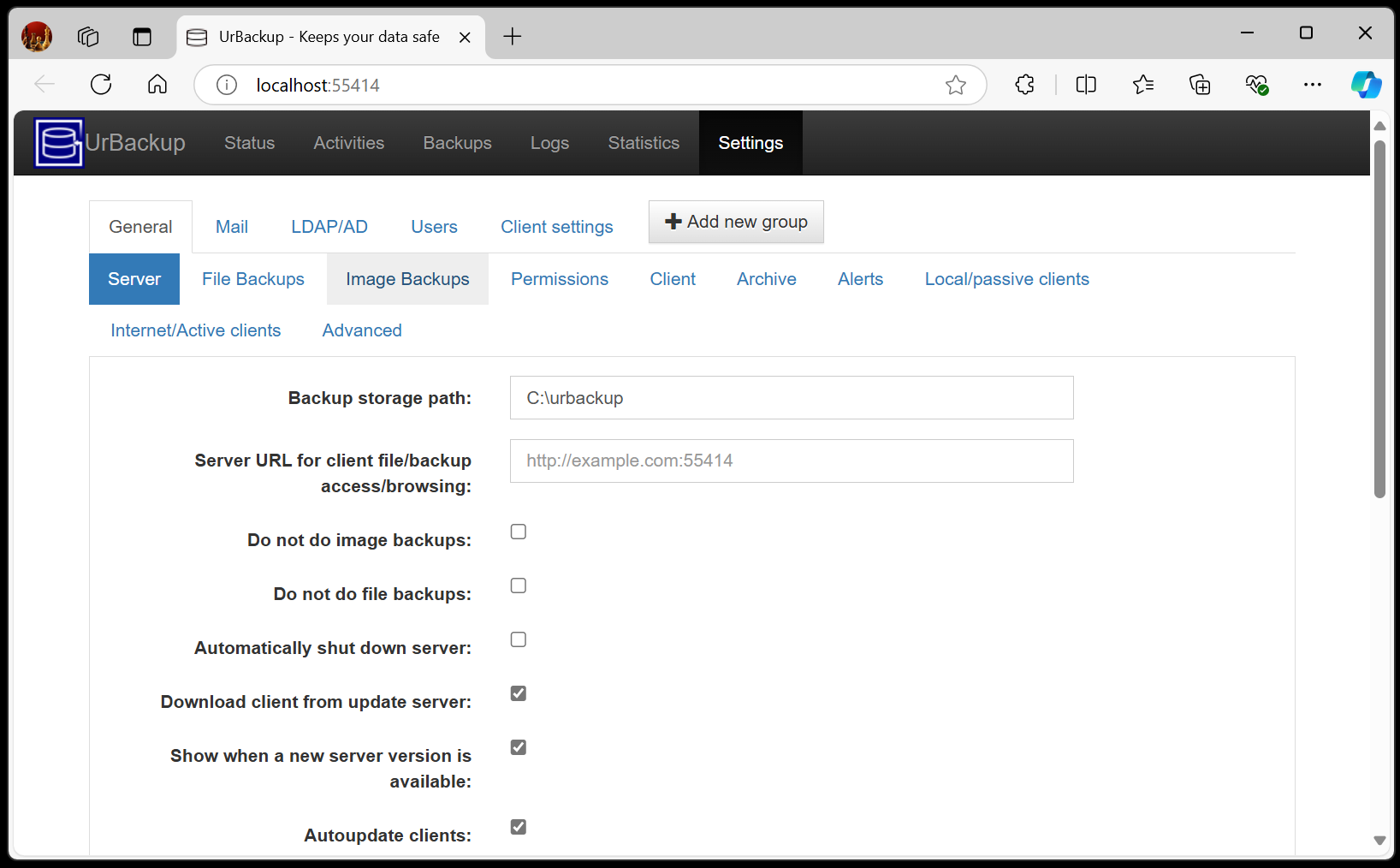UrBackup review
Most of the backup software we review are paid products – at best, they offer a free version with fewer features – but that’s not the case with UrBackup.
UrBackup is free backup software, open-source and with a client/server backup system, that works in the background while your PC is motoring through other tasks, so you won’t even notice it.
It has a very minimal footprint on your PC because much of the management is handled by a web interface, and it works on a host of alternative platforms too.
We've also highlighted the best disk cloning software right now.
Urbackup: Plans and pricing
Urbackup is open source, meaning that it’s functionally free as long as you adhere to its terms and conditions in both personal and commercial settings, so it could be a viable option if you want basic small business backup without having to pay.
It’s not just for Windows, either. The client application works on MacOS and a variety of Linux systems, and on the server side, it supports Windows, Debian, Ubuntu, RedHat, several other Linux versions and systems like FreeNAS, QNAP NAS and other NAS systems.

Features
UrBackup uses image and file backups to deliver fast, unintrusive, complete file preservation in the background while your system runs. It also keeps a continuous watch on folders and systems to ensure faster incremental backups, so you don’t have to make a fresh start each time you want to preserve files or folders.
File backup, management, and restoration are possible through the web interface, and backups can be configured, started, restored and logged using the small client installed on your home system.
Because this app largely uses a web interface, it’s mostly designed for web and NAS-based backups rather than local backups.
Restoration is also possible if you download a version of UrBackup that can be used to create a bootable USB stick – handy if you need to restore a system that has encountered technical difficulties and so won’t boot.
Backups can be made to the standard Microsoft VHD format or as a file-by-file replication, and the same files on different computers are only saved once – a handy move to preserve space.
The app’s logging and reporting options are extensive, and you can send backups anywhere, from local destinations and external hard disks to network and NAS-connected locations.
It’s certainly ideal if you want a simple and lightweight app to send backups to network and NAS locations, and UrBackup’s open-source status is a boon for people on a budget or those who want to use Linux distributions.
Delve into the options in the web interface and plenty of customisation is available. You can restrict the maximum number of backups and how much bandwidth is used, tweak permissions, back up mail servers, view extensive logs and monitor the status of your various backup locations.
This free app is missing many features compared to commercial backup apps, though. You’ll find more encryption and scheduling options elsewhere and a more comprehensive range of cloud options on many other tools. Many other backup apps also have additional modules for verifying backups, cleaning up and wiping files and other sundry computing tasks.

Interface and use
UrBackup is a free and focused app with a narrow remit, which is fine if you just need core backup functionality without an intrusive app.
It’s pretty quick to get started, too. Download the Server app, configure the network location where your backup will be stored, specify what you want to back up and let the app work.
Anyone who uses this tool, though, does need to have plenty of computing experience to get the most out of it. The tiny downloadable client is easily navigable for experienced users, but it makes nothing easy for beginners and is quite basic.
The web interface is similarly complicated, but it is packed with options – dozens, if not hundreds, that allow you to tweak virtually every aspect of your backup regime.
As before, though, you’ll need to be a pretty experienced PC or Linux user to get the most out of this app, even if there’s loads of potential here for creating unintrusive and personalised backup schedules and regimes.
UrBackup is certainly not the only app out there with this level of customization, and if you opt for systems from Macrium or EaseUS, or enterprise systems from Veeam or Acronis, you’ll find those options crammed into a far more accessible and understandable interface.
And because UrBackup is primarily an online tool, its performance will largely depend on your internet connection.
It took just over ten minutes to preserve our document and Excel folders and nearly twenty to handle our media and mixed file folders. Those are results that put it into the mid-table in our latest selection of backup tools, which is undoubtedly a decent result for a free piece of software.
Support

You won’t get the support system here that you will with commercial apps that have dedicated teams.
The best option for support with UrBackup is to head to the forums – UrBackup has an active and helpful community that can help with most issues. It’s also worth checking out the developer blog to see if extra features or fixes are coming in future updates to the app.
Elsewhere, there’s an issue tracker, FAQ, online manuals, and server support, but that’s all.
Competition
Any of the big commercial options will outmatch UrBackup in te, so we’d advise you to look to faster tools from big names like Acronis Cyber Protect, EaseUS Todo Backup, and Macrium if you need any level of backup.
If you want a free product, then Uranium, FBackup, Hasleo and Cobian tools do the job without asking you to spend a penny. And if you don’t like those, even more free versions are available elsewhere.
Be aware, though, that many of those free versions – while more accessible and competent – include adverts that try to upsell you to paid products. You won’t find that in UrBackup.
Verdict
This free, open-source app is a very niche and particular bit of software – an ideal backup option for anyone experienced with networks, interfaces and navigating tricky apps or anyone who wants to support open-source software or backup on Linux.
Beyond that, though, it’s tricky to recommend this tool unless you really know what you’re doing and have security measures incorporated into your systems elsewhere. Other apps are easier to use, faster, or have more support options. There’s also no encryption built-in to UrBackup, which is a huge risk to any home or business user.
UrBackup is an admirably open-source option that will sate some people who want a low-key, low-resource “send and forget” backup tool, but it’s hard to recommend for most people beyond those technically-minded few who will be comfortable with this kind of software.
0 comments:
Post a Comment